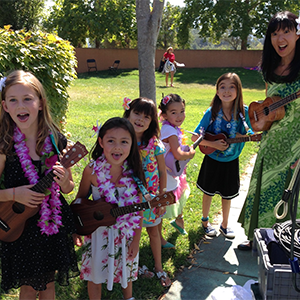Reading This Summer
More Important than Ever

If your child can read, he or she can learn anything. It’s really quite important. So get on the reading bandwagon this summer and let those skills flourish..
Summer is here and it’s time for fun in the sun. Yes. But, many of your children have been through the pandemic mill when it comes to their classroom experiences and they will need extra support to maintain their reading skills.
Some children in primary grades have not had “normal” educational direct instruction for two years. While we all applaud the efforts of classroom teachers during this challenging time, even they know the instruction has not been optimal.But, don’t panic. With regular reading support over the summer, you can boost your child’s reading confidence and skill levels. Here are some ways to sharpen reading skills and make sure your child will be ready to soar next fall.
Review the Basics
It may seem too simple, but do take the time to review all the letter sounds, vowel sounds and the sounds of blends and digraphs (dr, br, tr, and ch, ph, sh for example). Sometimes errors slip into basic skills without our notice. Classic examples are the sounds w and y make as they are not phonetic.
Then review things like periods and question marks at the end of sentences, characters and settings, and beginning, middle and endings of stories. Simple conversations about these as you read a book aloud will suffice.
You might also talk about the structure of a book: cover, title page, table of contents, pictures and text, indexes and glossaries, etc. Children who are familiar with these have a deeper understanding of books and all they offer.
Review Strategies
Children need to have an arsenal of strategies at the ready when they get “stuck” in reading. It may be as simple as a reminder of a letter sound or vowel sound, but often they need to know how to ask themselves a question or think about the context of the story.Parents can give prompts such as “What makes sense? What sounds right? What does the “e” do at the end of a word? Another good strategy is to go back and re-read or read on. Sometimes that solves the reading problem. Or find a part of the word that is familiar, for example dog in doghouse.
Picture clues are a great help to young readers as they provide context and can help children anticipate what might be said. And finally, children need to know that if they’ve tried some strategies and still need help, it’s okay to ask for help.
Reading is a complex skill and a bit like solving a puzzle. You can help kids be good thinkers as they read.
Practice for Fluency
Young children are often so focused on decoding the words that they lose the rhythm and intonation of the words as they read. They sound like a robot. Give them the opportunity to gain fluency and “sound good” as they read. You can read a sentence and have them repeat it with good inflection. They can practice on a book they know well, and work on stopping at periods and making a question sound like a question.
Focus on Comprehension
Without understanding, reading can become an exercise in “barking at the moon.” Many early readers need help to think about the meaning of the words they read. Parents can enhance this process by asking questions, helping children make predictions (What do you think the dog will do next?) and having your child retell the story back to you after reading it.
A few minutes spent in previewing a new book, looking at the title, the pictures, identifying the characters and predicting what will happen in the story is a great way to focus on meaning. This is called a “book walk” and is definitely worth the time spent doing it.
Retellings are a good way to evaluate your child’s understanding of a book. Do they include the beginning, middle and ending? Do they leave out a major element of the story? Do they understand why the characters did what they did or do they get why a story is funny or sad? Acting a story out with stuffed animals or other toys is another way to get to the heart of the meaning in the story.
Practice
Nothing improves reading skills as much as…. you guessed it, time spent reading! It is vitally important that regular reading sessions take place over the summer months. A month is a very long time in the life of a young person and kids will definitely lose their hard-won skills if they don’t read for several months.
Don’t think of reading as a chore or a punishment. It’s just a normal part of every day. Make it fun and plan some activities that relate to reading good books. Reward reading sessions with small treats. Choose a theme and read a series of books about it or join a local library or book store’s summer reading program.
If your child can read, he or she can learn anything. It’s really quite important. So get on the reading bandwagon this summer and let those skills flourish.








